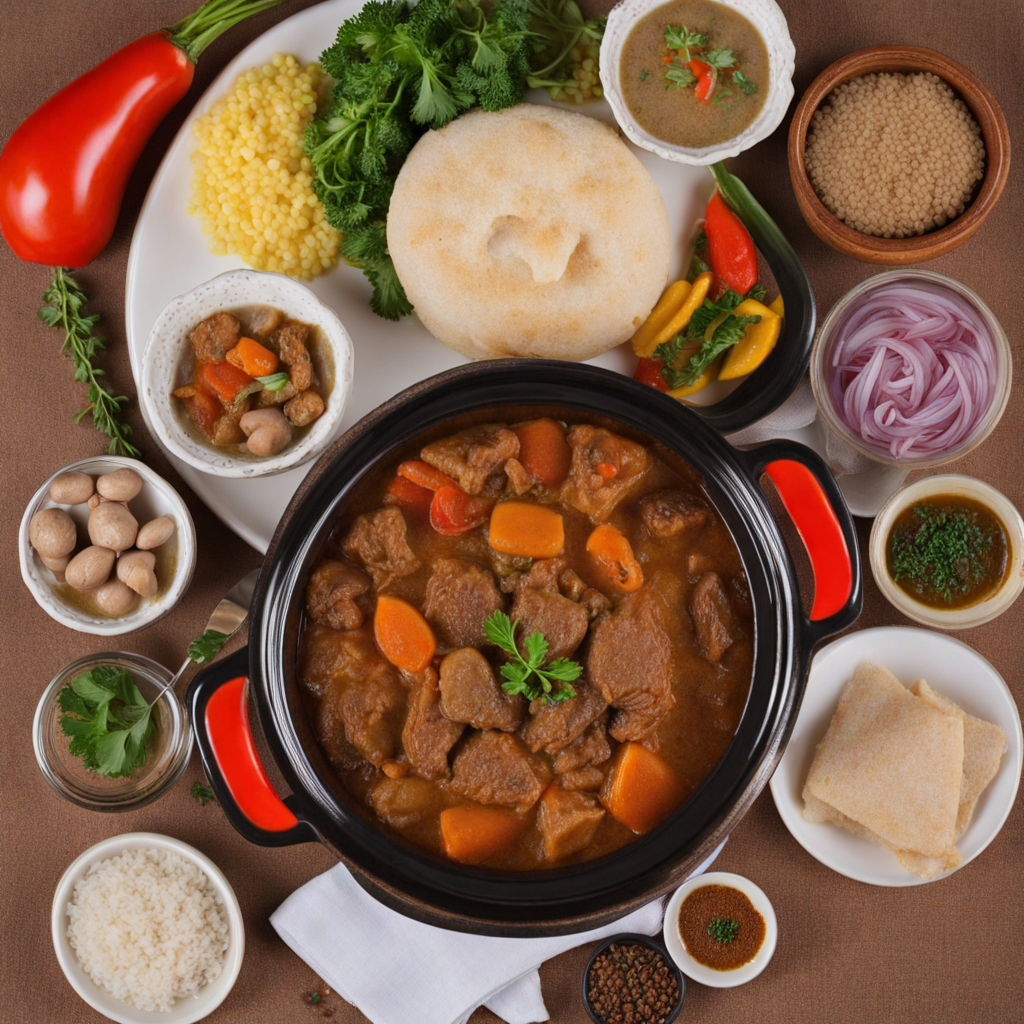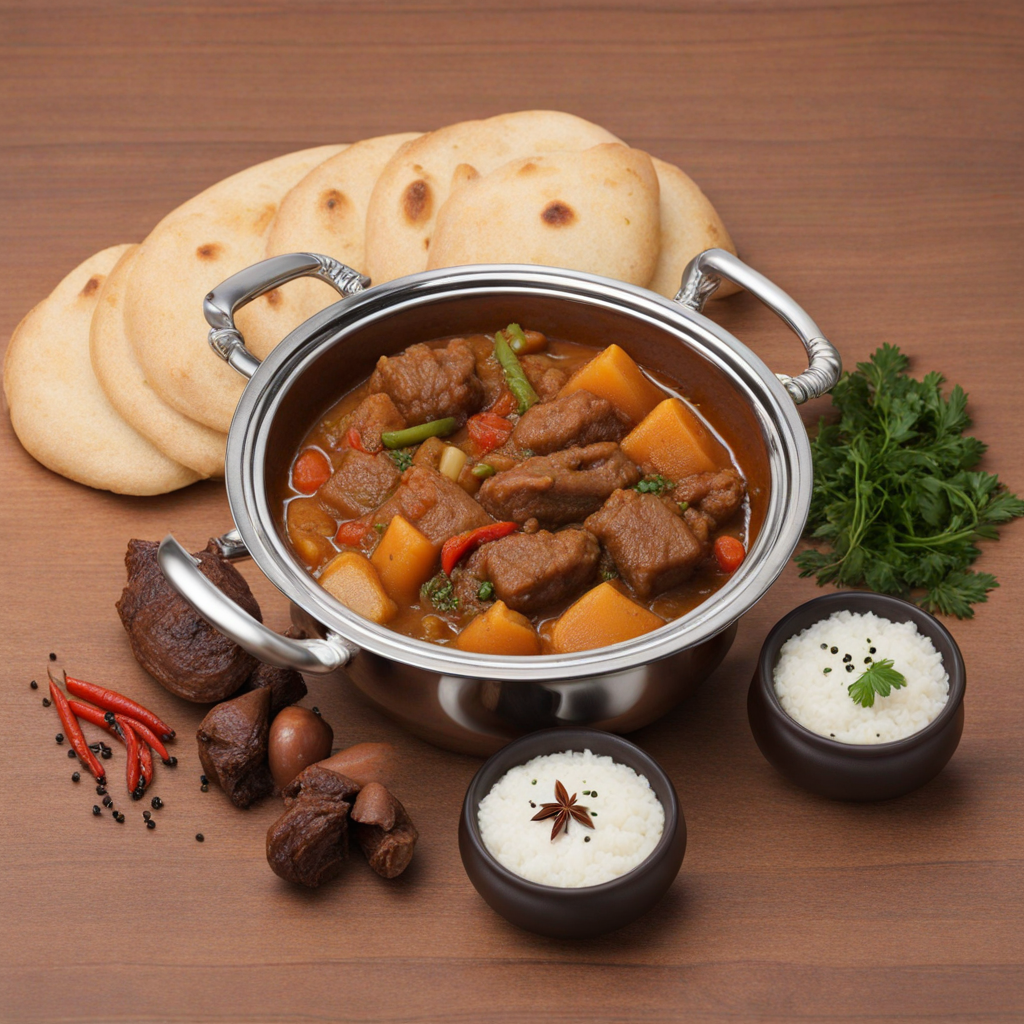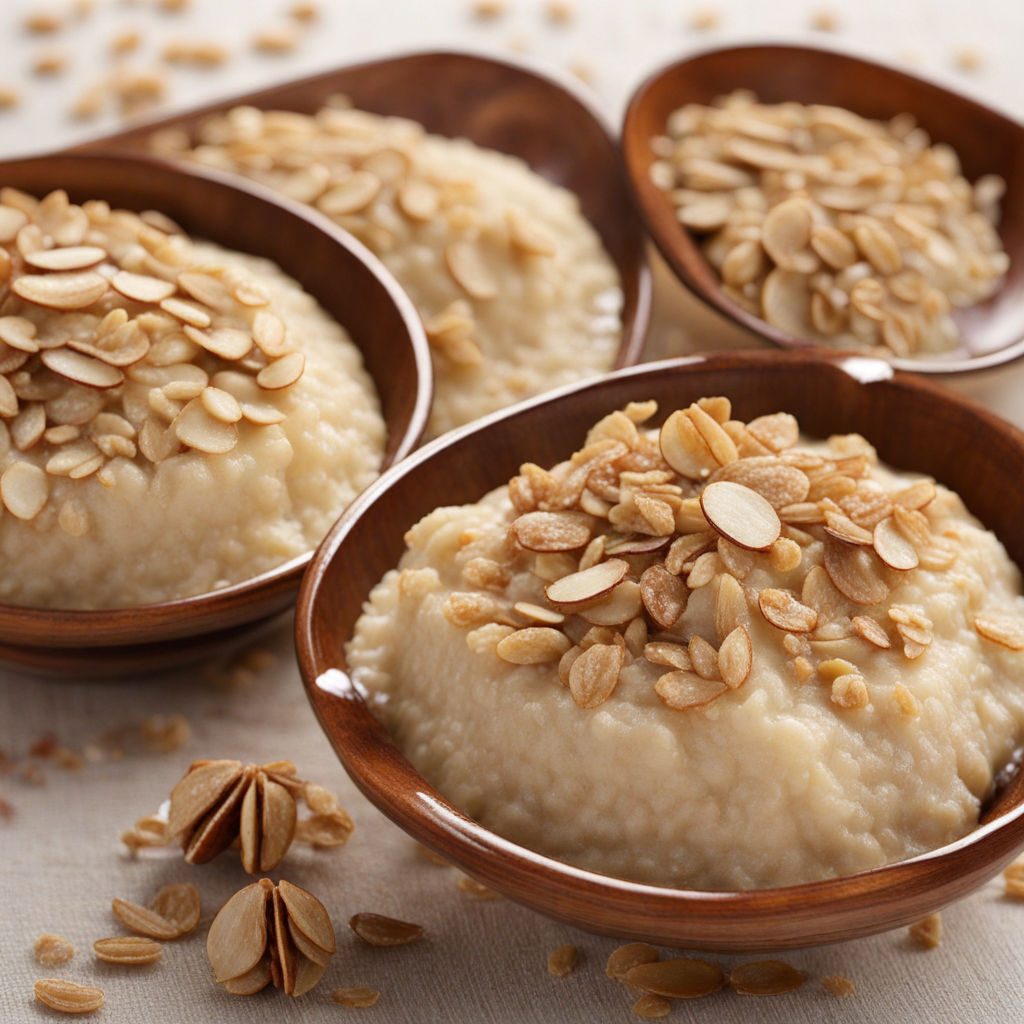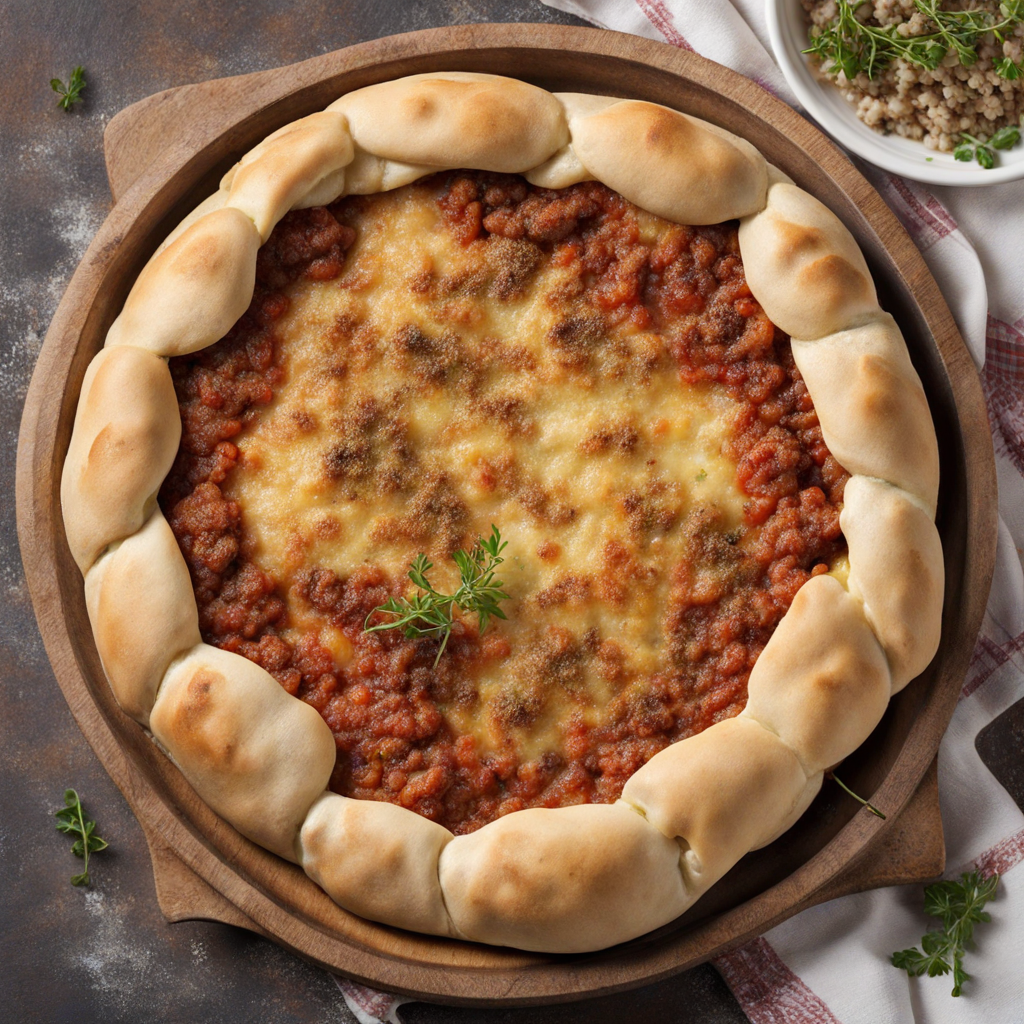Al Salona
Al Salona is a traditional Emirati dish that beautifully reflects the rich culinary heritage of the United Arab Emirates. This hearty stew is typically made with a variety of meats, such as lamb or chicken, which are slow-cooked to perfection, allowing the flavors to meld beautifully. The meat is accompanied by an array of vegetables, including potatoes, carrots, and zucchini, all simmered together in a fragrant broth seasoned with a blend of spices that often includes turmeric, coriander, and cumin. The result is a warm and comforting dish that is both flavorful and aromatic, making it a staple in many Emirati households. One of the defining characteristics of Al Salona is its use of fresh herbs and spices, which elevate the dish to new heights. The combination of these spices not only enhances the natural flavors of the meat and vegetables but also adds a depth of complexity that is truly delightful. Some variations of Al Salona may also incorporate chickpeas or lentils, adding an extra layer of texture and nutrition. The stew is often served with a side of rice or flatbread, allowing diners to soak up the delicious sauce and enjoy every last bite. Al Salona is more than just a meal; it embodies the spirit of hospitality and community that is central to Emirati culture. It is often prepared for gatherings and special occasions, where families and friends come together to enjoy this delicious dish. The experience of sharing Al Salona is as important as the food itself, making it a perfect choice for anyone looking to savor authentic Emirati flavors and discover the warmth of its vibrant food culture.
How It Became This Dish
The Rich History of 'السلونة' (Al Salona) in the United Arab Emirates Introduction Al Salona, a traditional dish from the United Arab Emirates (UAE), is a culinary gem that encapsulates the rich cultural heritage and history of the region. This dish, often a hearty stew, typically features a medley of meats, vegetables, and spices, reflecting the resourcefulness of the Emirati people in using available ingredients to create nourishing meals. The preparation and consumption of Al Salona carry significant cultural meaning, serving as a reminder of the UAE's past and its evolution into a modern nation. Origins of Al Salona The origins of Al Salona can be traced back to the Bedouin lifestyle that shaped the early societies of the Arabian Peninsula. The nomadic tribes relied heavily on their natural surroundings, and their diets consisted primarily of what could be hunted, gathered, or traded. With the introduction of agriculture and settled communities, the culinary landscape began to change. Al Salona is believed to have emerged as a staple dish during the 20th century, though its roots are much older. The primary ingredients—meat, tomatoes, onions, and a variety of vegetables—were easily accessible in the arid climate of the UAE. The dish's name, derived from the Arabic word "سلونة," which roughly translates to "stew" or "sauce," emphasizes its liquid, hearty nature. Historically, Al Salona was a communal dish, often prepared in large quantities to serve families and guests alike. It was typically cooked in a large pot, allowing for the flavors of the ingredients to meld beautifully over a slow fire. This communal aspect of cooking and eating is emblematic of the values held by Emirati society: hospitality, generosity, and togetherness. Cultural Significance Al Salona holds a cherished place in Emirati culture, not only as a beloved dish but also as a symbol of unity and tradition. Meals in the UAE often revolve around family gatherings, especially during significant occasions such as weddings, festivals, and holidays. Al Salona is commonly prepared for these events, as it serves as a hearty meal that can feed many. The dish also reflects the broader culinary practices of the region, which are influenced by the diverse cultures that have traversed the UAE over centuries. Trade routes established in ancient times facilitated the exchange of not just goods but also culinary techniques and spices. As a result, Al Salona has evolved over time, incorporating flavors from neighboring regions, including South Asia and the Levant. In addition to its role in communal dining, Al Salona is often associated with the concept of "Majlis," a traditional gathering space where families and friends come together to discuss matters of importance or simply enjoy each other's company. Serving Al Salona in a Majlis setting underscores the importance of hospitality, where guests are welcomed warmly and offered generous portions of food. Evolution Over Time As the UAE has developed and modernized, so too has Al Salona. In the early days, the dish was prepared using simple methods and local ingredients, but modernization has seen the incorporation of new techniques and flavors. Today, Al Salona can be found in both traditional forms and contemporary interpretations, reflecting the dynamic nature of Emirati cuisine. In traditional recipes, Al Salona typically includes lamb or chicken, simmered with a combination of spices such as cumin, coriander, and turmeric. Vegetables like potatoes, carrots, and bell peppers are often added for texture and flavor. While the base of the dish remains consistent, modern interpretations may introduce new ingredients, such as chickpeas or even seafood, to cater to evolving palates. The rise of globalization has also influenced the way Al Salona is prepared and consumed. With the influx of expatriates and tourists in the UAE, chefs and home cooks alike have begun to experiment with the dish, introducing fusion elements that blend traditional Emirati flavors with global culinary trends. This evolution serves as a testament to the adaptability of Al Salona, allowing it to maintain its relevance in today’s fast-paced world. Furthermore, the UAE's culinary scene has gained international recognition, leading to the emergence of restaurants that specialize in Emirati cuisine. These establishments often feature Al Salona on their menus, showcasing not just the dish itself but also the cultural stories and traditions that accompany it. Food festivals and cultural events in the UAE celebrate this heritage, allowing both locals and visitors to experience the depth of Emirati cuisine. Al Salona Today In contemporary Emirati society, Al Salona remains a beloved dish, symbolizing both nostalgia and adaptability. Home cooks continue to prepare it for family gatherings, while restaurants celebrate its heritage by incorporating it into their menus. The dish serves as a reminder of the UAE's rich history, representing the fusion of old and new. Moreover, Al Salona plays a role in promoting culinary tourism in the UAE. With an increasing emphasis on heritage and authenticity, food enthusiasts are eager to explore traditional dishes like Al Salona, seeking not just a meal but an experience steeped in cultural significance. Cooking classes and culinary tours that highlight the preparation of Al Salona are gaining popularity, enabling participants to immerse themselves in the traditions behind the dish. Conclusion Al Salona is more than just a stew; it is a living testament to the history, culture, and evolution of the United Arab Emirates. From its humble origins in Bedouin society to its status as a cherished communal dish, Al Salona encapsulates the spirit of hospitality that is central to Emirati culture. As it continues to evolve, merging tradition with modern influences, Al Salona remains a delicious reminder of the UAE's rich culinary heritage and the values that bind its people together.
You may like
Discover local flavors from United Arab Emirates







